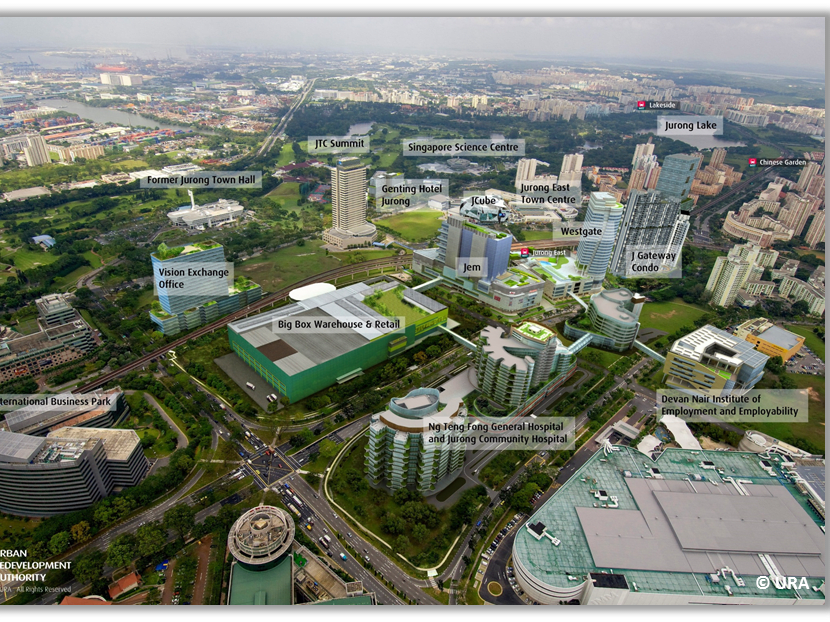Europe firms form bulk of 98 registrations for HSR
SINGAPORE — Nearly 100 submissions were received for the Request for Information (RFI) exercise for the Kuala Lumpur-Singapore High Speed Rail (HSR) project, which closed for registration last week, with the majority coming from European companies and consortia.

An overview of the area where the Kuala Lumpur-Singapore High Speed Rail will be built at. Graphic: Urban Redevelopment Authority
SINGAPORE — Nearly 100 submissions were received for the Request for Information (RFI) exercise for the Kuala Lumpur-Singapore High Speed Rail (HSR) project, which closed for registration last week, with the majority coming from European companies and consortia.
Four of the 98 submissions received were from Singapore, said Malaysia’s Suruhanjaya Pengangkutan Awam Darat (SPAD) and Singapore’s Land Transport Authority (LTA) in a joint statement today (Nov 25).
Other companies and consortia, which come from across the HSR value chain, include entities based around the world.
There were 13 from Malaysia, seven from North America, 14 from East Asia, one from the Middle East, three from Oceania and 56 from Europe.
These entities include a spectrum of business types such as civil and construction, financial institution, rolling stock provider, advisory, project management consultant, operator, system provider and technical consultant.
When contacted by TODAY, a spokesperson from Germany-based Siemens said the company had registered for the RFI exercise. “It’s a collaborative effort amongst our HQ (Germany), Malaysian and Singapore teams,” she added.
In August, Siemens and Thales won a €34.8 million (S$51.9 million) contract on the Chamartin-Torrejon de Velasco section of Spain’s high-speed rail network. Other prominent European companies in the high-speed rail industry include France’s Alstom Group, Italy’s AnsaldoBreda and Canada’s Bombardier.
Alstom Transport Asia-Pacific’s senior vice-president, Mr Dominique Pouliquen, told TODAY last month his firm was “very keen” on the KL-Singapore HSR project. The company, however, would not confirm whether it had registered interest in the RFI.
Transport analysts TODAY spoke to felt there was a strong interest from the European companies and consortia as their experience running HSR operations would be beneficial for the Kuala Lumpur-Singapore HSR project.
Dr Walter Theseira, a senior lecturer at SIM University (UniSIM), pointed out that the European high-speed train networks operate many cross-border services, unlike the Chinese and Japanese systems, which operate within their respective national borders. “That cross-border expertise could be of interest, since the Singapore-KL HSR is a cross-border project,” he said.
National University of Singapore transport researcher Lee Der-Horng pointed out the European continent is “more or less saturated”. “We don’t really see that many new (HSR) lines (in Europe), only in Asia people are still talking about new HSR lines,” he said.
UniSIM adjunct associate professor Park Byung Joon said many companies that manage the engineering systems and technology to run the HSR are based in Europe.
Dr Park noted that China’s HSR trains are based on Germany’s Intercity-Express, and that many countries rely on European technology.
In the statement, SPAD CEO Mohd Azharuddin Mat Sah and LTA’s CEO Chew Men Leong said: “We are grateful for the strong feedback that the market has provided us on our project. We will study the responses thoroughly and consider how the project’s commercial model and procurement approach can be further improved.”
Both governments are expected to finalise the commercial model and procurement approach of the HSR project by next year.






